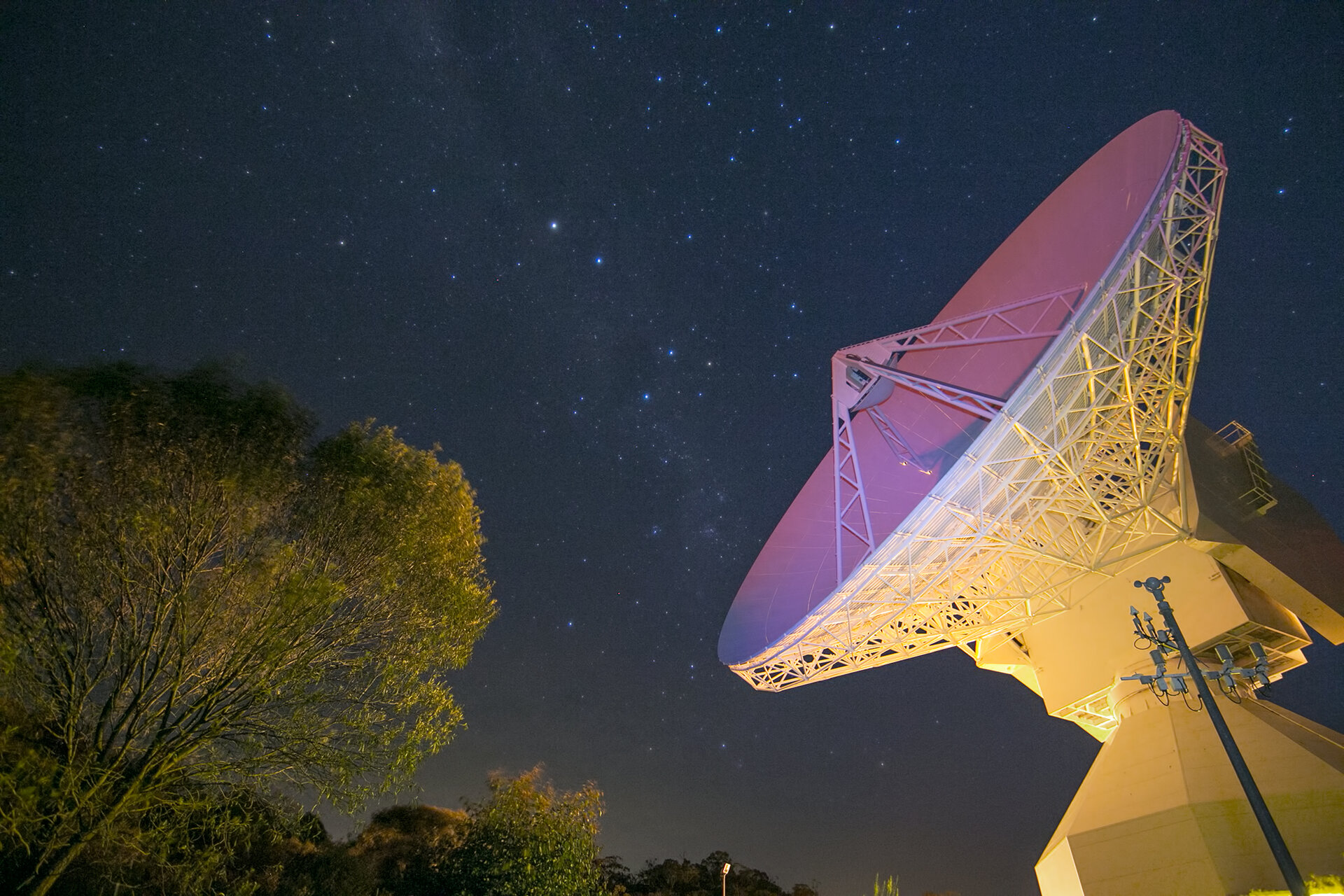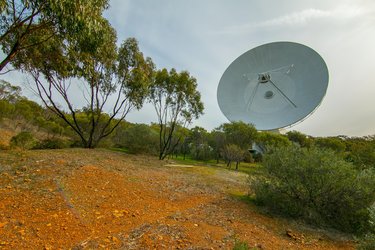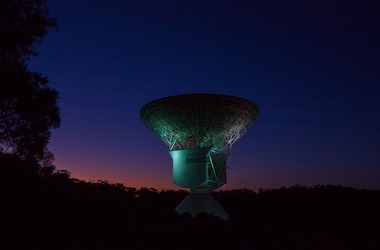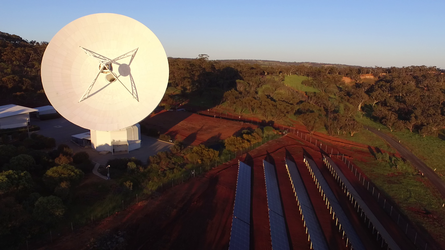

Looking up from down under
ESA’s 35 m-diameter dish antenna at New Norcia, Western Australia, glows with reflected laser light in this photo, taken by Dylan O’Donnell, a photographer based in Byron Bay, New South Wales, Australia.
The deep-space tracking antenna provides critical communications with missions such as Rosetta, Mars Express and Gaia – all voyaging millions of kilometres away in the Solar System.
Next week, ESA will officially inaugurate a new, smaller 4.5-m satellite-tracking antenna recently built at the station (just a few hundred metres from the big dish). It can quickly and with high precision lock onto and track launch vehicles, such as Europe’s Ariane 5, Vega and Soyuz, and satellites during their critical initial orbits, up to roughly 100 000 km out.
The Agency has invited a group of social media followers to join us at the inauguration for a special, separate programme, including briefings on current and future planetary missions, deep-space communications, ground station engineering and next-generation lasers-in-space technology. Participants will also be guided on an exclusive, behind-the-scenes tour of the ground station facilities and antennas.
Participation in ESA’s social media events is free for selected attendees, but all must follow one of ESA’s social media channels and they cover their own travel and other costs.
Follow the event online on 10 and 11 February via the official hashtag, #SocialSpaceWA
More information
-
CREDIT
Dylan O'Donnell -
LICENCE
ESA Standard Licence

The longest call

Ghostly green

Sunburnt country

Speaking to spacecraft

